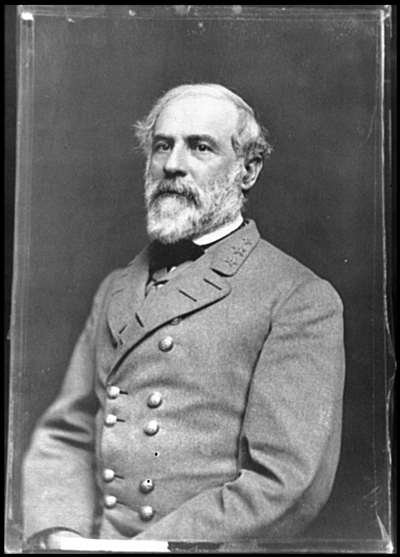Robert E. Lee
Featured Character – 1864 Confederate Decline
Robert E. Lee was born at Stratford, Westmoreland County, Virginia, on January 19, 1807. He graduated second in his class at West Point in 1829 and was given commission in the U.S. Engineer Corps. In 1831 he married Mary, daughter of G. W. P. Custis, the adopted son of Washington, through which Lee acquired his great Arlington estate. Lee was made captain and in this rank took part in the Mexican War, where he won distinction for his conduct and bravery. When he returned, he was made superintendent of West Point in 1852, a post he kept for three years. In 1859, Lee was sent to deal with John Brown’s raid on Harper’s Ferry, an event that intensified the conflict between the North and South. Two years later Lee was made colonel of the 1st US Cavalry, but when the Federal authorities offered him command of a field army leaving to invade the South after some states had left the Union, he resigned his post. Though he was strongly against secession, Lee felt it his duty to serve his state, and so he went to Richmond where he was promptly made major-general in the Virginian forces and brigadier general a few weeks later. During the winter of 1861, Lee used his engineering skills to fortify and defend the Atlantic coast; however, he was summoned back to Richmond on May 31, 1862 and assigned command of the famous Army of Northern Virginia after the wounding of General Johnston at Seven Pines. With his army, Lee fought several battles that ended in Confederate victory. He stopped George B. McClellan’s advance at the Seven Days’ Battle, the invasion of Maryland, the Battle of Antietam, Fredericksburg, and Chancellorsville.
However, fortune turned against the Confederates after the Battle of Gettysburg despite local victories for Lee in 1864, a year in which he fought at Wilderness, Spotsylvania, Cold Harbor, and Petersburg. The numbers and strength of the unrelenting enemy wore down Lee’s army and he was forced to surrender after being driven and pursued westward in 1865. On April 9th of that year at Appomattox Court House, Lee and his Army of Northern Virginia surrendered, virtually marking the end of the entire Confederacy. For months he lived in Powhatan County, still urging people to accept the new conditions. In August of 1865 he was offered presidency of Washington College in Lexington, which he accepted and kept until he died on October 12, 1870. He was buried on the college grounds.
